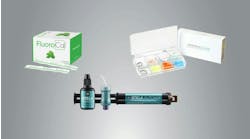By Jonathan Martin, CPA
Many dentists hire associate doctors without proper planning. Whether the associate will remain an employee, or be part of your transition plan to ultimately buy into your practice or buy you out, it is important to avoid several mistakes that can hinder your ability to sell your practice.
I recently worked with a doctor who had an associate for over 20 years. During that time the associate became responsible for a substantial amount of the production, and became well known by the patients. But the associate had become comfortable as an employee and had no desire to purchase the practice. Given this, the owner listed the practice for sale, and was able to find many candidates, several of whom made offers to purchase. However, the seller made several mistakes that prevented things from moving forward.
MISTAKE #1: Overpaying your associate
In conducting their due diligence, purchasing candidates noticed immediately that the associate was drastically overpaid, receiving a commission equal to 40% of the production. First, this was a general practice, where the average associate compensation is a commission of between 30% and 35%. Second, the commission should have been based on collections, not production. This particular oversight was more substantial than initially perceived, given that this practice had a sizeable insurance component with significant differences between production and collections.
In other words, the associate's 40% commission on production was approximately 45% of his collections. This was not an attractive situation for anyone looking to purchase the practice.
Excessive compensation can also create problems for the associate who intends to buy your practice, or buy into your practice. The more an associate is paid as an employee, the less incentive there is for the person to become an owner. If you are paying an associate something more in line with market compensation (such as 35% of his or her collections), but your practice has only a 30% profit margin, your associate would essentially take a pay cut in becoming an owner.
MISTAKE #2: No covenant not to compete
The second issue was that the associate did not have a covenant not to compete. The purpose of a covenant is to prevent associates from moving to a location within a certain distance of the practice and taking patients with them. Purchasing candidates concluded that if they bought the practice, there was nothing to protect their investment. In this case the patients knew the associate doctor well, and many were likely to follow if she -eft the practice.
In the end, several offers were made on this practice. However, each offer contained two contingencies. The first required the associate to accept a reduction in compensation. The second required the associate to sign a covenant not to compete. Unfortunately, the associate was unwilling to do either, and ultimately the owner was never able to sell his practice. The associate took a position with one of the owners' competitors less than a mile down the road.
One of the lessons to be learned from this is the importance of not overpaying your associate. Determine the profitability of your practice, and pay the associate what the practice can afford. The other lesson is to always have your associate sign a valid and legally enforceable covenant not to compete. While not all states allow covenants and other states limit their use, most states do allow them. As many gun enthusiasts say, "I would rather have one and not need it than need one and not have it." The same logic can be applied to having your associate sign a covenant. Sometimes things don't work out as we plan. If you want to protect your largest investment and your life's work, get out of your own way and make what will be one of the best decisions over the course of your career. The alternative could ultimately kill the sale of your practice.
Jonathan Martin, CPA, provides transition planning for practice sales, partnerships (buy-in/buy-out), practice mergers, associateships/compensation analysis, and financial forecasting (pro forma) through Roger K. Hill & Company, member of the McGill & Hill Group, LLC. Call 888-400-8550, ext. 704.
Past DE Issues





